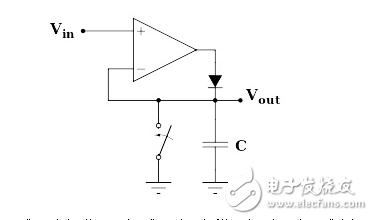
资料下载

用rms探测器测量射频功率
用rms探测器测量射频功率
在大多数无线应用电路中,必须监控和控制射频功率的传输和接收电平。这是为了尽量减少功率放大器(PA)的电流消耗,控制接收器增益,优化性能和效率,并满足信号强度监管任务。
为了测量射频功率,使用了三种不同的方法:峰值检波器/放大器、对数(对数)放大器和rms转换器。每一个都满足不同类型的复杂RF波形的应用程序优先级和需求,以及性能和成本问题。
请注意,射频功率测量可以在两个地点完成:无线和有线。无线,实际辐射功率的变频器如二极管的目标感,从而产生信号的射频功率,照射在它的比例。这是一个真正的“射频功率”测量。

In contrast, when we measure RF power in a wired circuit, we are not really measuring the power directly. Instead, we are determining the RF power by measuring an “analog” of it, in this case, the voltage across or current through a known resistor. Once you know voltage or current and the resistance, you can compute the power. While this is an indirect way to assess RF power, it is quite accurate if done properly, and certainly more convenient and practical.
It may seem that the obvious way to compute the power is to digitize the sensed RF voltage or current and then perform appropriate calculations, but this is very impractical for several reasons. The digitization process would require a converter with extraordinarily-high speed and resolution, which is generally not available. Such a converter would also dissipate significant power, while the high-speed, real-time calculation would require considerable processing capacity.
声明:本文内容及配图由入驻作者撰写或者入驻合作网站授权转载。文章观点仅代表作者本人,不代表电子发烧友网立场。文章及其配图仅供工程师学习之用,如有内容侵权或者其他违规问题,请联系本站处理。 举报投诉
- 相关下载
- 相关文章







